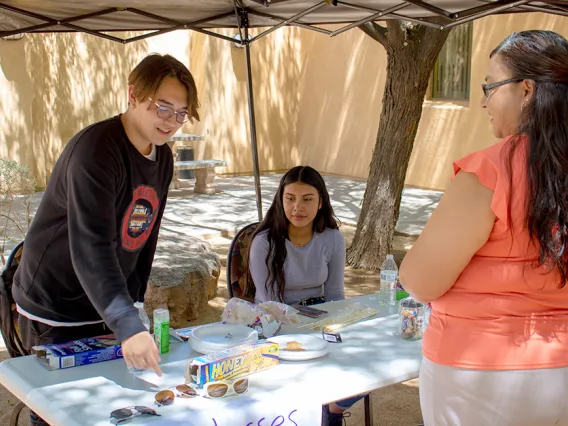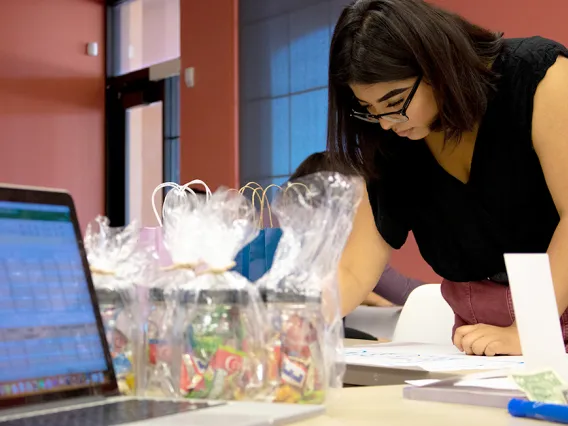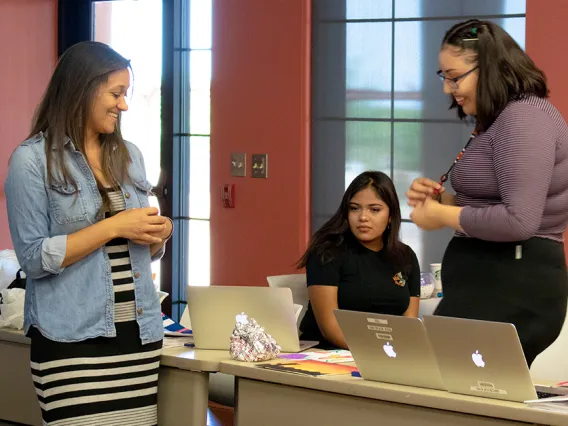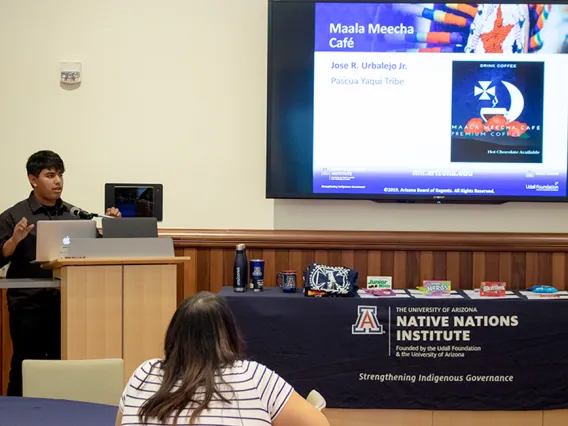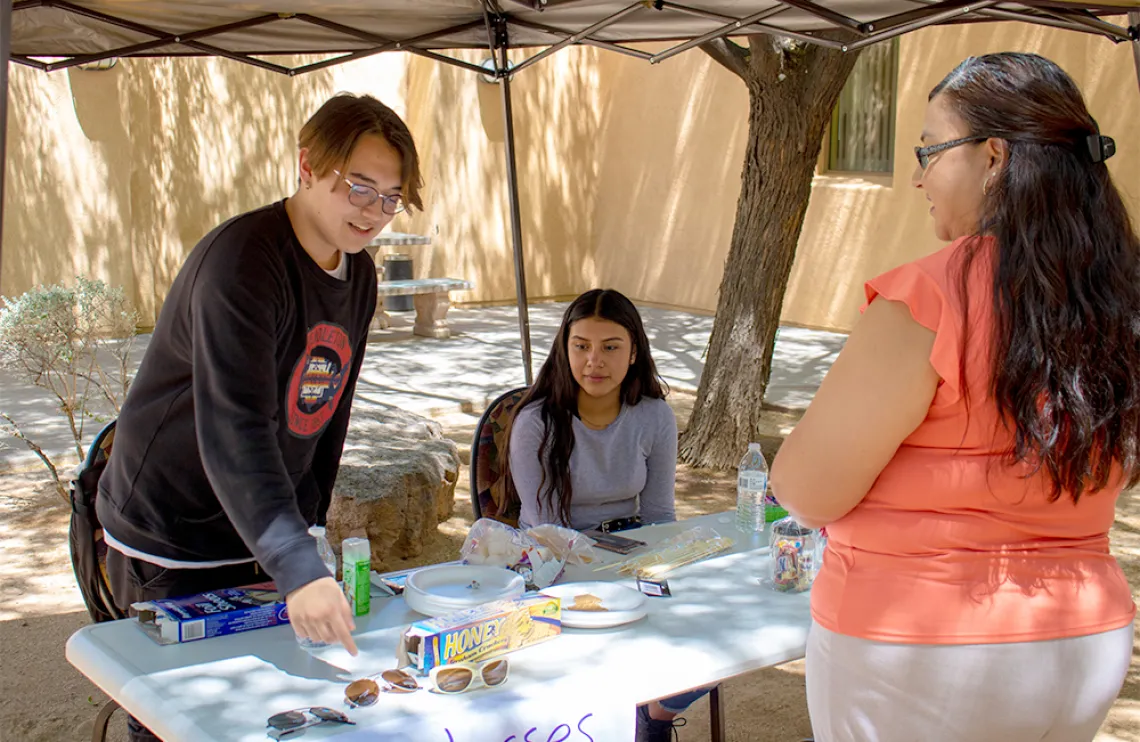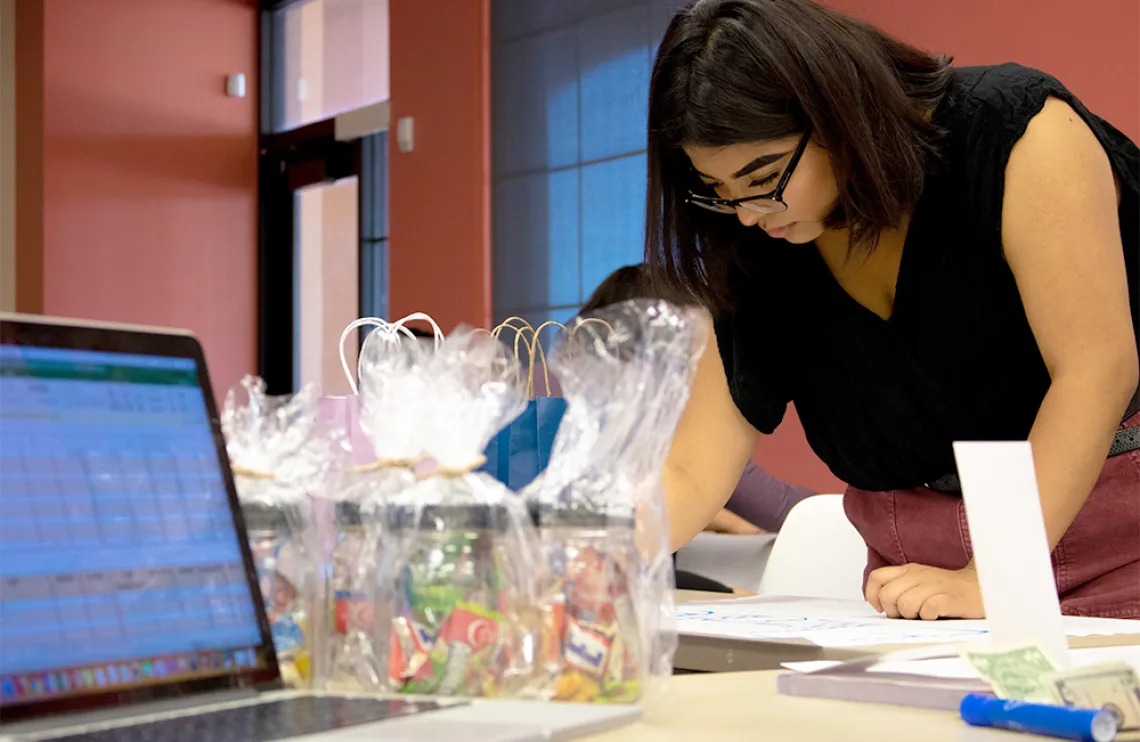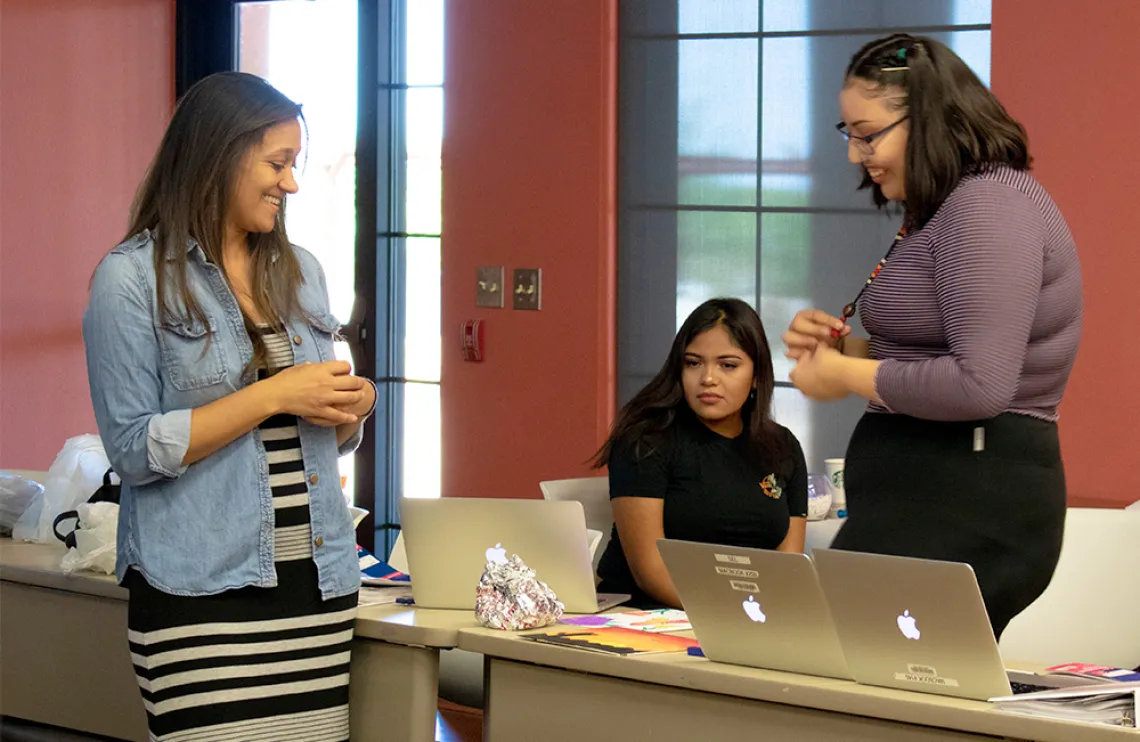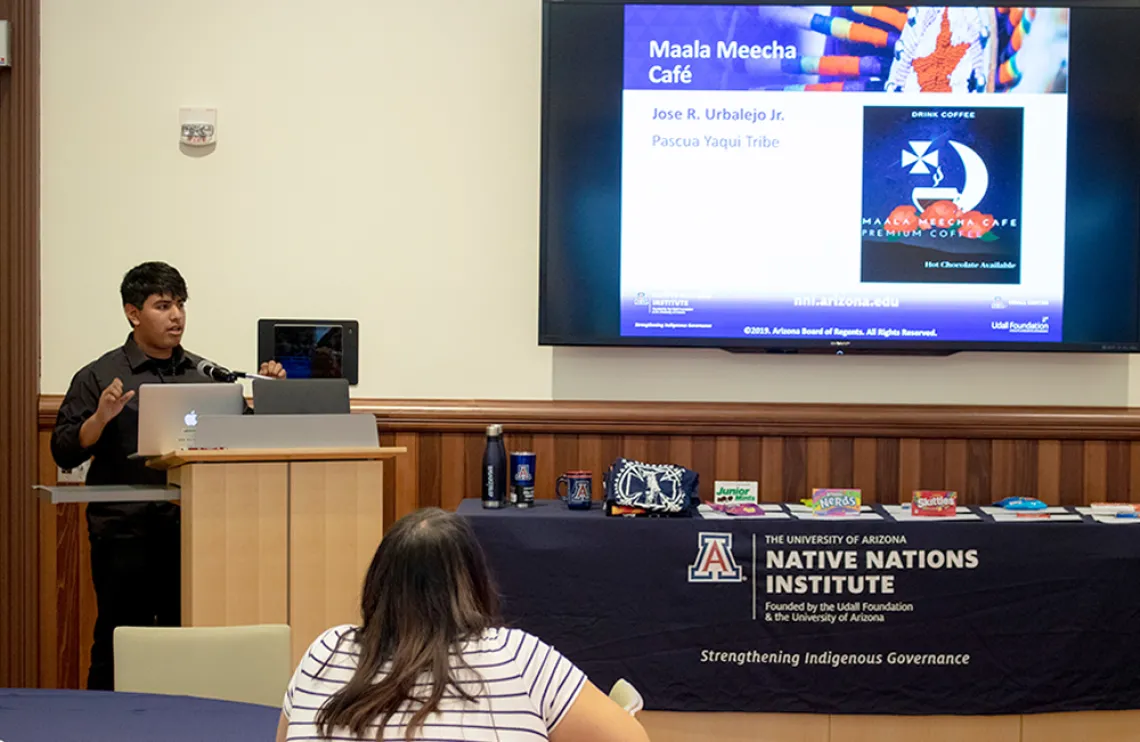Native American Youth Entrepreneurship Program Is More than Business Training – It’s Proof of What’s Possible
NNI is pleased to offer the 2023 Native American Youth Entrepreneurship Program online on June 19-23, 2023.
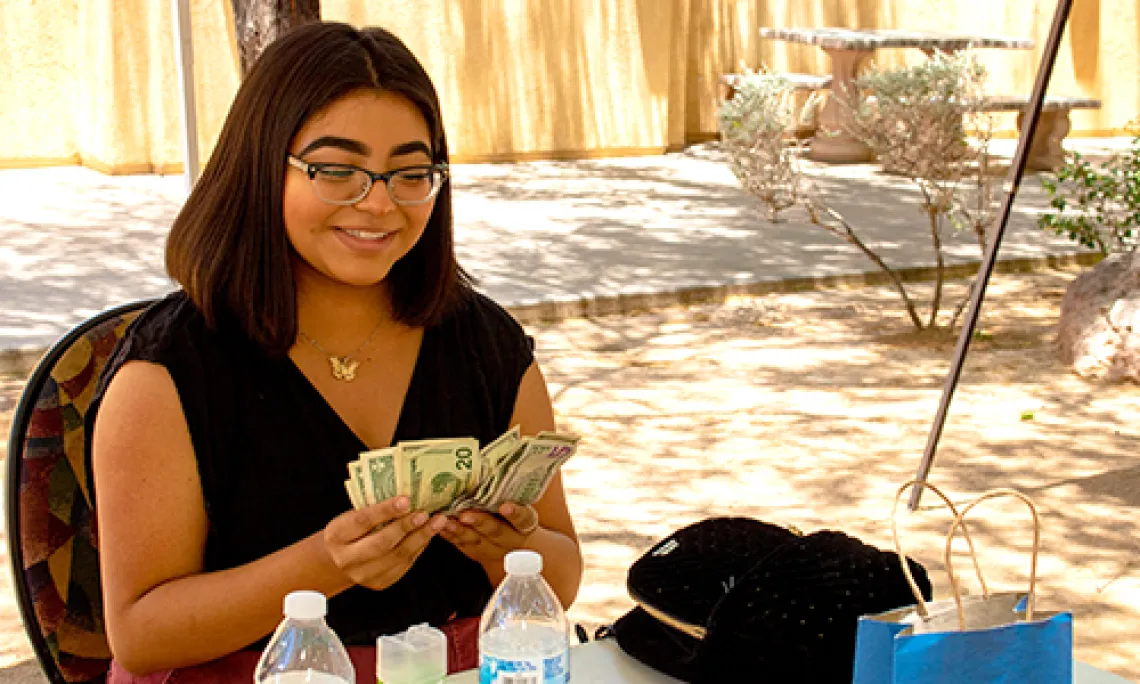
A 2019 NAYEP participant counts cash after participating in a program market event.
The Native Nations Institute (NNI) at the University of Arizona’s Udall Center for Studies in Public Policy is reviving its Native American Youth Entrepreneurship Program this summer. The program will operate in an online format from 1 PM - 3 PM Arizona/Pacific DST on June 19-23, 2023.
At the time of writing, two scholarships for interested students are available for this program. To apply for a scholarship, students need only submit a short essay with their program application detailing the business they hope to create and explaining why they should be chosen for the scholarship. All current high school students and summer 2023 high school graduates in the U.S. who identify as Indigenous and have a reliable method of attending the daily online sessions are invited to apply to participate in the summer program.
NNI is also looking for individual, private, and corporate sponsors to fund the program, to support students with need-based scholarships in the event that they are unable to pay the program’s $50 application fee, and to provide in-kind donations that will be distributed to student participants as incentive awards and giveaways.
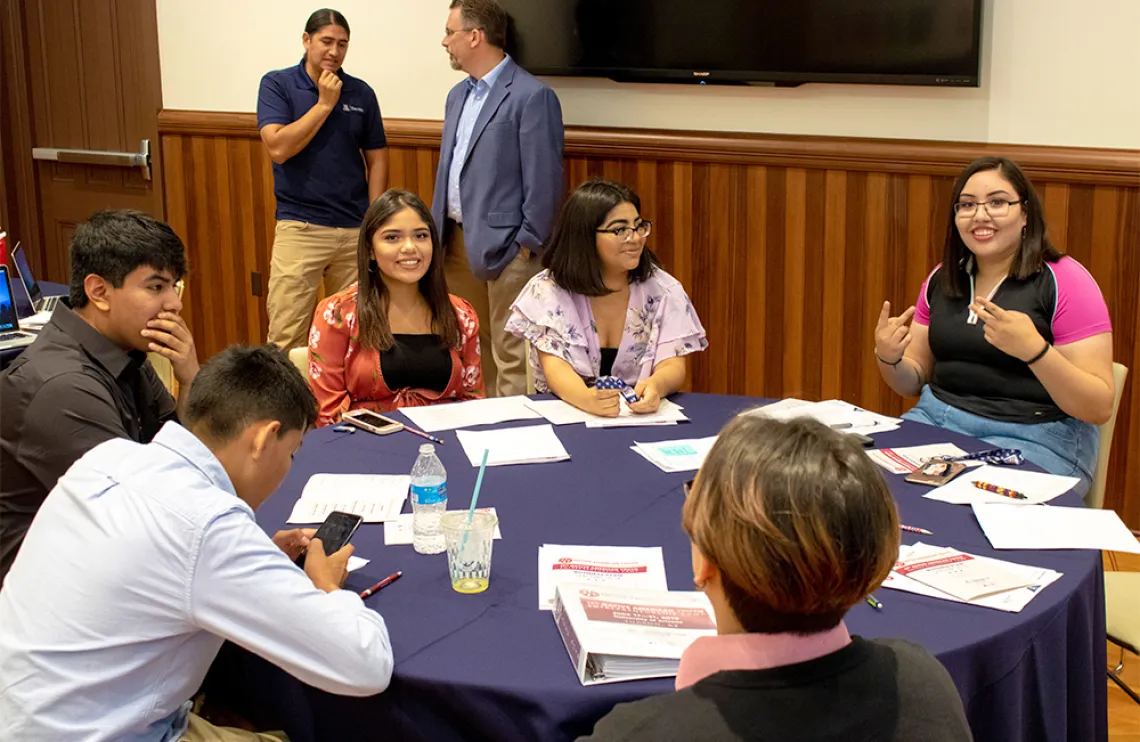
NAYEP participants during the Speed Pitch Showcase
Background
Founded by NNI Executive Director Joan Timeche (Hopi) in 2000 as the ‘Native American Youth Entrepreneur Camp’ during her tenure as the Program Director for Northern Arizona University’s Center for American Indian Economic Development, the Native American Youth Entrepreneurship Program (NAYEP) aims to “foster skills to encourage private-sector development in Indian Country by teaching high-school youth the basics of economics, computer skills, strategies for success, and business-plan preparation.”
Over its more than two decades of operation, the NAYEP has hosted scores of Indigenous students from dozens of tribes across North America, from the Nome Eskimo Community in Alaska to the Eastern Band of Cherokee Indians in North Carolina.
The 2023 version of the NAYEP will look to foster innovative discussions amongst a diverse youth peer group hailing from a wide representation of the 574 federally recognized tribes in the U.S. and any other Indigenous youth who currently live in the U.S.
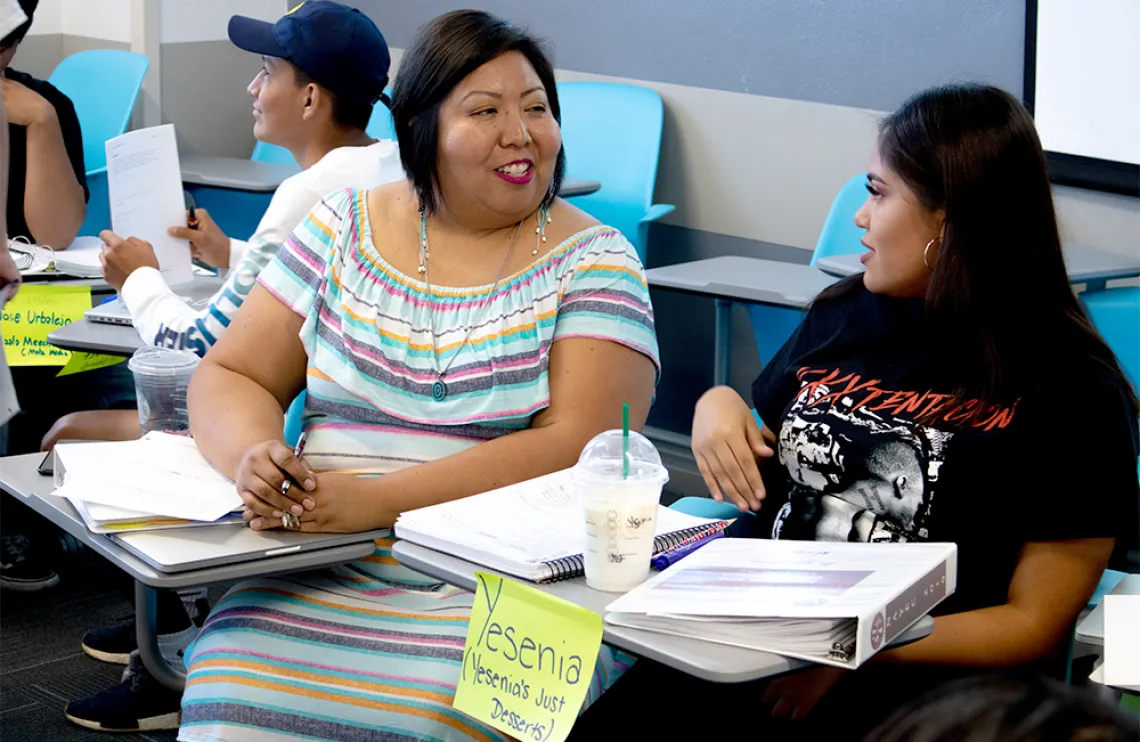
Guest speaker April Tinhorn (Hualapai Tribe and Navajo) chatting with a participant
The Need for Economic Engagement in Indian Country
Between 2007-2012, the number of Native-owned businesses in the United States increased by more than 36,000, or 15.3 percent. According to the U.S. Small Business Association, today there are roughly 300,000 businesses in the U.S. that are owned by American Indians or Alaska Natives. Collectively, those businesses generate around $50 billion in revenue each year.
Still, despite notable economic gains in recent decades, Native American populations have a long road ahead in terms of closing the racial wealth gap. Native Americans have higher poverty and unemployment rates than any other ethnicity (25.4 percent and 7.5 percent, respectively, compared to 8.1 percent and 3.1 percent for Whites) and were also hit harder than other ethnic groups by the financial and health catastrophes associated with the COVID pandemic, for instance.
Taken together, it all adds up to “an opportunity for private sector development on American Indian lands to improve economic conditions for Native communities,” in the words of Timeche.
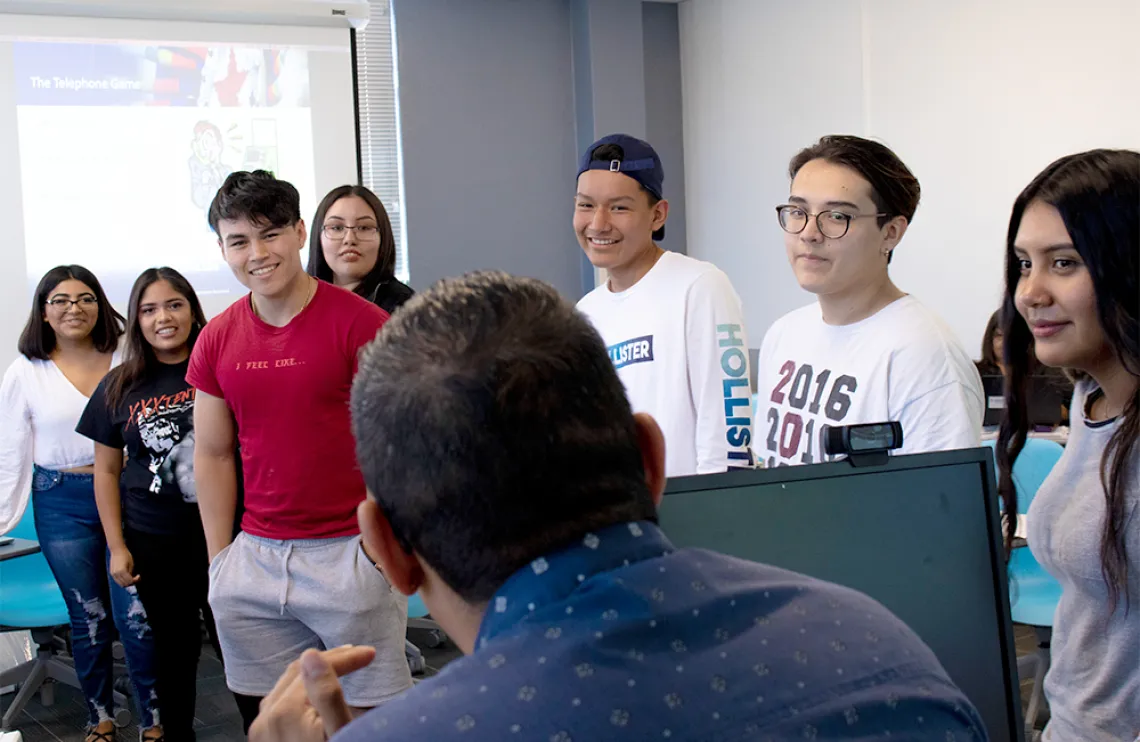
Participants learning about defining their target market
Building Confidence, Creating Opportunity
The development of a Native-owned business is about more than putting a few extra dollars in the pockets of its owners, though the NAYEP does promise to equip participants with the foundational knowledge and skills necessary to turn an idea into a real, functioning producer of capital.
As Timeche points out, Native-owned businesses also serve as economic and cultural engines that can help Indigenous Peoples gain visibility beyond their reservations and homelands while simultaneously helping to break generational cycles of poverty.
“Today, only about 29 percent of Native Americans and Alaska Natives live on reservation,” Timeche says. “By helping young entrepreneurs develop their own businesses, it’s more than just helping participants build a better future for themselves and their families. We’re also looking to help these up-and-coming young professionals provide goods and services to their communities, create jobs, generate revenue and, over the long run, build the foundations for thriving commercial sectors that will help support their communities for generations to come,” she says, adding that “Sometimes it just takes a little bit of guidance for things to really start clicking.”
NNI is also aware that many of the NAYEP students may one day become department directors, local leaders, tribal enterprise board members, or elected leaders. All these positions require basic business foundations to ensure their programs, enterprises, and governments are sustainable for generations to come. In this way, NAYEP helps to build future leaders in addition to helping nurture young entrepreneurs.
Along with the impact of driving revenue and economic growth, NNI Tribal and Direct Services Manager and NAYEP Instructor Crystal Miller (Walker River Paiute) points out that Native-owned businesses are also important vehicles for cultural expression and representation. “Native designers are able to incorporate and translate traditional knowledge into their work in ways that others just can’t,” Miller says. “Native restaurateurs can help introduce people to traditional foods, Indigenous flavors, and other elements of tribal culture. Not only that, but every successful Native business owner – especially a young business owner – is an example of what’s possible to the next Indigenous individual who wonders if they have what it takes to start something of their own.”
That, Miller says, is why NAYEP exists. It’s more than just helping a small cohort of individuals develop their entrepreneurial skills. Rather, it’s about the ripple effect that one person’s success can have on their entire community that motivates the NNI team to offer this type of programming year after year.


